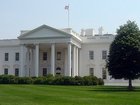The European economy contracted slightly at the end of last year and beginning of 2023, revised figures showed Thursday, underlining the impact of the loss of Russian natural gas and high inflation on consumer spending.
Economic output in the 20 countries that use the euro currency dropped 0.1% in both the final three months of 2022 and first three months of this year from the previous quarters, according to the European Union's statistics agency Eurostat.
 Full Story
Full Story
The Turkish lira tumbled to a fresh record low Wednesday, extending its slide against the U.S. dollar since President Recep Tayyip Erdogan started his third term.
The lira weakened by around 7% on Wednesday, hitting 23.16 against the dollar. The decline took the currency's loss since the appointment of Erdogan's new government to more than 8%. The currency has weakened by around 20% since the start of the year.
 Full Story
Full Story
The global economy is likely slowing sharply this year, hobbled by high interest rates, the repercussions of Russia's invasion of Ukraine and the lingering effects of the coronavirus pandemic.
 Full Story
Full Story
French unions are seeking to reignite resistance to President Emmanuel Macron's higher retirement age with what may be a final surge of nationwide protests and scattered strikes Tuesday.
 Full Story
Full Story
The White House on Tuesday is launching a website to map and track tens of thousands of infrastructure projects and private manufacturing investments, an effort by the administration to show the positive impact of its policies on the U.S. economy to a skeptical public.
The site, Invest.gov, documents roughly 32,000 infrastructure projects and more than $470 billion worth of investments in the production of electric vehicles, batteries, computer chips, biotech, clean energy and other sectors. President Joe Biden is seeking reelection in 2024 by trying to show how his policies are reshaping the U.S. economy to address climate change and compete with rivals such as China.
 Full Story
Full Story
Cost of living woes are focusing European voters' minds one year before they go to the polls to choose a new EU parliament, a new official survey Tuesday showed.
Half the 26,000 respondents questioned across all 27 EU countries for the Eurobarometer survey "see their own standard of living in decline and expect it to decrease even further," according to the results.
 Full Story
Full Story
Turkey's annual inflation rate dropped below 40 percent in May for the first time in 16 months, pushed down by a temporary offer of free gas to households, official data showed on Monday.
Consumer prices rose by 39.6 percent on an annual basis and were almost stable, at 0.04 percent, compared to the previous month, according to the country's statistics agency.
 Full Story
Full Story
Wall Street is relatively flat Monday following last week's last surge propelled by U.S. jobs data that raised new questions about if or when a recession might arrive.
Futures for the S&P 500 and the Dow Jones Industrial Average are essentially unchanged heading into a week with little new data expected from major U.S. corporations or economic indicators from Washington.
 Full Story
Full Story
Switzerland's UBS said Monday that it expects to complete its takeover of longtime rival Credit Suisse as early as next week.
The two Zurich-based banks are uniting in a 3 billion-franc ($3.3 billion) deal that was arranged hastily in March by the Swiss government and regulators after Credit Suisse's stock plunged and jittery depositors quickly pulled out their money.
 Full Story
Full Story
Saudi Arabia will reduce how much oil it sends to the global economy, taking a unilateral step to prop up the sagging price of crude after two previous cuts to supply by major producing countries in the OPEC+ alliance failed to push oil higher.
The Saudi cut of 1 million barrels per day, to start in July, comes as the other OPEC+ producers agreed in a meeting in Vienna to extend earlier production cuts through next year.
 Full Story
Full Story



